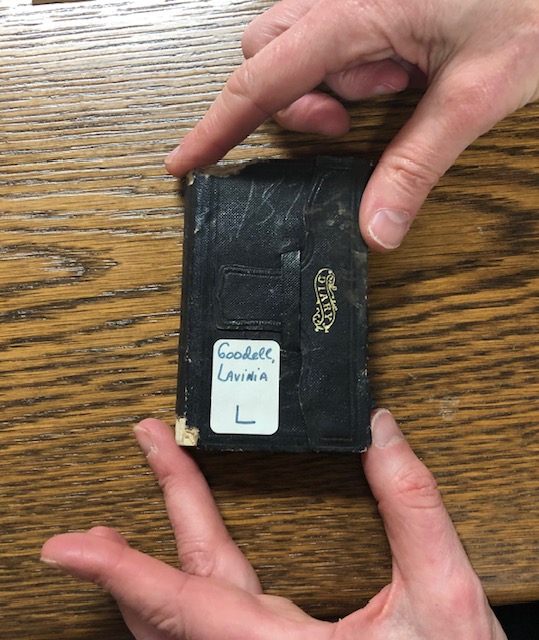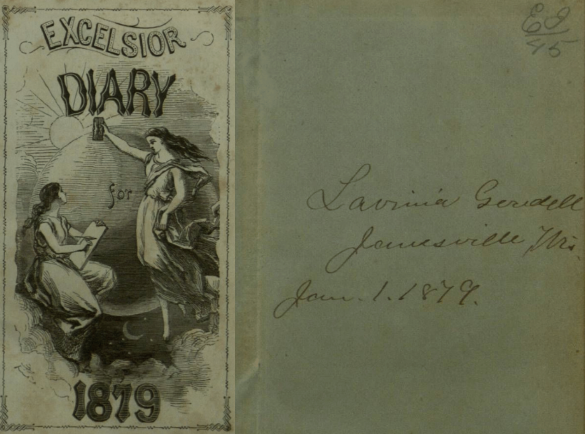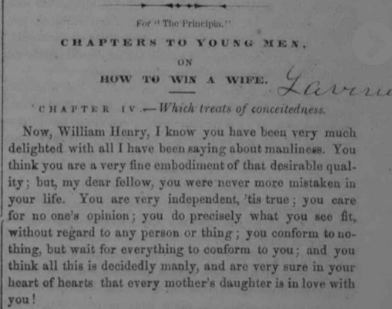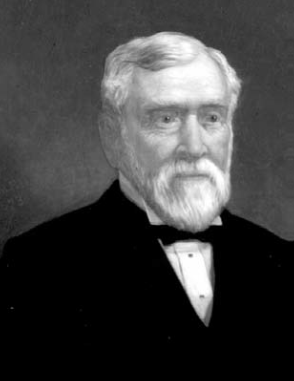“Clear and cold. Got up late.”
Lavinia Goodell, January 1, 1879
With the exception of 1878, Lavinia Goodell made daily entries in a diary from 1873 until shortly before she died in 1880. The small leather bound volumes are part of the William Goodell family papers housed in the special collections and archives at Berea College in Berea, Kentucky. (Lavinia’s beloved eldest nephew, William Goodell Frost, was the long time president of Berea College.)

The diaries and vast cache of family correspondence provide a firsthand view of Lavinia’s life. The amount of primary source material written by Lavinia herself is truly astounding and allows us to know what she was doing and thinking on an almost daily basis.
1878 had been a difficult year for Lavinia. Both of her parents died, and she spent months in the east undergoing and then recovering from major surgery to remove an ovarian tumor. No diary survives from this annus horribilis, but Lavinia took up her pen again in 1879.















